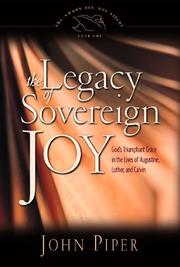The January selection for our book club is
Kim by Rudyard Kipling
(c1901), and I purchased a paperback copy (Penguin edition, 1987) at Half Price Books. Usually I don't write or underline in books, but I probably won't keep this one, and with confusing names and events, thought underlining might be helpful.
 http://cowpattyhammer.wordpress.com/2011/05/30/kim-kipling-kamakura/
http://cowpattyhammer.wordpress.com/2011/05/30/kim-kipling-kamakura/
I'm finding it very interesting, and Kipling's knowledge of the country
of his birth which he left at a young age is amazing. Also enlightening are the
notes and introduction in my used paperback copy (Penguin, 1987) by Edward Said,
probably read by thousands of high school and college students in the last 25
years. Dinesh D'Sousa calls Edward Said Obama's founding father.... "One of
Obama’s founding fathers who remains relatively unknown is the Palestinian
radical Edward Said. Prior to his death in 2003, Said was the leading
anti-colonial thinker in the United States. Obama studied with Said at Columbia
University and the two maintained a relationship over the next two decades
Said is actually an excellent writer, and I’m thankful to have his critical
analysis of a novel 110 years old. But as a man without a country, a U.S.
immigrant always unhappy with his adopted home, he reminds me so much of all the
transient (in soul and sometimes body) faculty and foreign students I knew at
the University of Illinois in the 1950s-60s. Because I was a foreign language
major many of my instructors were emigres—driven from homeland by politics or
war. First degree relatives shot, burned or imprisoned, never to be seen
again. The cultural heritage of centuries ripped away. Many of my classmates
came to the U.S. as “displaced persons” as toddlers or children after
WWII--grateful for their lives, but always mourning what had been lost to
Stalin, or Mao, or Hitler, or Tito, etc. Some had been ethnic Chinese whose
families had lived for years outside China, sort of double displacement.
No matter what is good in the novel
Kim, Said can't get past British
imperialism, as Obama can't get past what he calls American imperialism. One can
substitute Said's situation for what he says about colonial powers/Kim's: "For
what one cannot do in one's own [homeland--anywhere in the middle east or Asia]
where to try to live out the grand dream of a successful quest is only to keep
coming up against one's own mediocrity and the world's corruption and
degradation, one can do abroad." (p. 42 introduction, Penguin ed.) I think Said
enjoyed his tiny celebrity status as the ultimate anti-colonialist, and he would
have been a nobody in any other country without the give and take and freedom of
speech he was allowed in the U.S. and classrooms filled with adoring disciples
ready to deny anything good in Western civilization.




